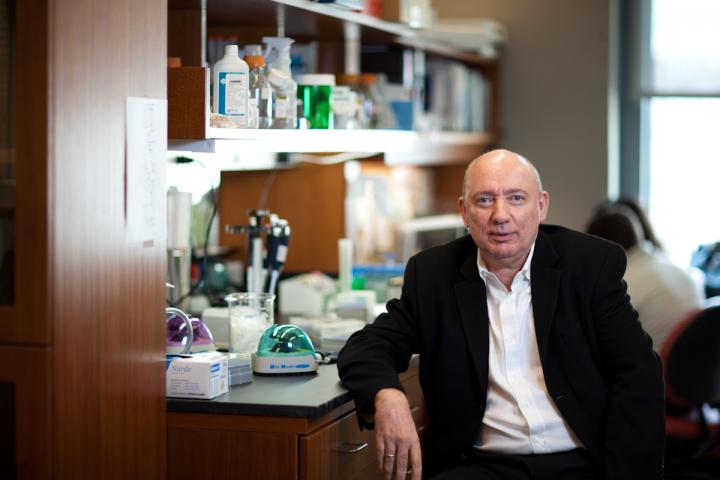
Credit: Albert Einstein College of Medicine
Oct. 16, 2017– BRONX, NY — Scientists now believe that the Fountain of Youth flows from our genes, or at least from the genes of people who live healthy lives to age 100 or later. To discover what's special about the genes of these centenarians — and apply that knowledge to extend the healthy lives of the rest of us–the National Institutes of Health has awarded researchers at Albert Einstein College of Medicine, part of Montefiore Medicine, and the Florida campus of The Scripps Research Institute (TSRI) a five-year, $9 million grant.
"Aging is arguably the key risk factor for the most common diseases that afflict us, including type 2 diabetes, cardiovascular disease, most types of cancer and Alzheimer's and other neurodegenerative diseases," says Jan Vijg, Ph.D., professor and chair of genetics and the Lola and Saul Kramer Chair in Molecular Genetics at Einstein and the study's principal investigator.
Rather than study age-related diseases, says Dr. Vijg, "We're focusing on the genetic differences between healthy centenarians and people with no family history of extreme longevity, looking for rare genetic variants that account for the centenarians' longevity. Once we pinpoint the beneficial effects that these novel gene variants are causing, we'll be in a position to develop drugs that mimic those effects and, ideally, help people attain longer, healthier lifespans."
The first of the three projects funded by the grant will be led by Yousin Suh, Ph.D., professor of genetics, of ophthalmology & visual sciences and of medicine at Einstein. She and colleagues will analyze the entire genomes (approximately 20,000 genes) of 700 healthy centenarians and compare them with the genomes of 800 individuals (average age 70) with no family history of extreme longevity. The researchers will look for gene variants that are enriched in the centenarian genome but rare or absent in the genomes of the "ordinary" individuals. The scientists will check to see whether those candidate longevity genes are also present in the genomes of other centenarians being studied in the US and Europe.
Novel gene variants found in the first project will then be introduced into the genomes of mice, to evaluate whether the gene variants yield benefits in animals that are relevant for late-life human health. Knowledge gained from finding "longevity variants" in people and validating them in animals will culminate in the third project: developing and testing small molecules aimed at duplicating the positive physiological effects produced by the longevity gene variants.
###
The small molecules will be tested in several animal models, including a mouse model of accelerated aging created in the laboratory of Laura Niedernhofer, M.D., Ph.D., associate professor of molecular medicine at Scripps. The Scripps portion of the grant is directed by Paul Robbins, Ph.D., professor of molecular medicine and director of the TSRI Center on Aging.
About Albert Einstein College of Medicine
Albert Einstein College of Medicine is one of the nation's premier centers for research, medical education and clinical investigation. During the 2016-2017 academic year, Einstein is home to 717 M.D. students, 166 Ph.D. students, 103 students in the combined M.D./Ph.D. program , and 278 postdoctoral research fellows. The College of Medicine has more than 1,900 full-time faculty members located on the main campus and at its clinical affiliates. In 2016, Einstein received more than $160 million in awards from the National Institutes of Health (NIH). This includes the funding of major research centers at Einstein in aging, intellectual development disorders, diabetes, cancer, clinical and translational research, liver disease, and AIDS. Other areas where the College of Medicine is concentrating its efforts include developmental brain research, neuroscience, cardiac disease, and initiatives to reduce and eliminate ethnic and racial health disparities. Its partnership with Montefiore , the University Hospital and academic medical center for Einstein, advances clinical and translational research to accelerate the pace at which new discoveries become the treatments and therapies that benefit patients. Einstein runs one of the largest residency and fellowship training programs in the medical and dental professions in the United States through Montefiore and an affiliation network involving hospitals and medical centers in the Bronx, Brooklyn and on Long Island. For more information, please visit http://www.einstein.yu.edu , read our blog, follow us on Twitter, like us on Facebook and view us on YouTube.
Media Contact
Elaine Iandoli
[email protected]
718-430-4137
@EinsteinMed
http://www.einstein.yu.edu





